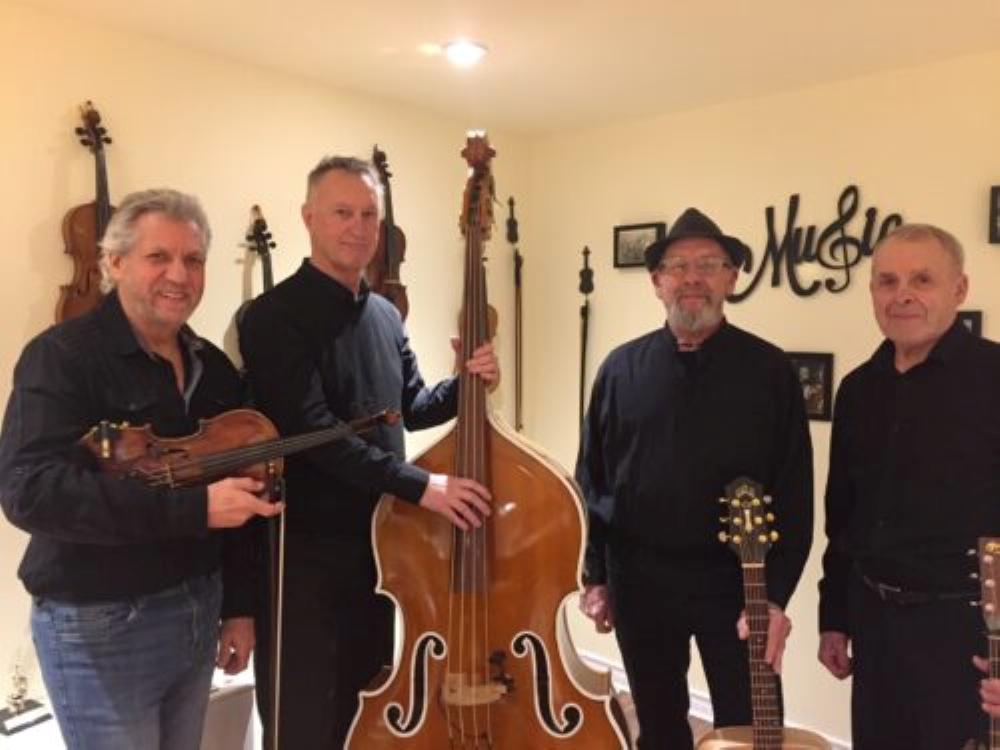AlgomaTrad is offering a new program for seniors. The Senior Artists Online program, which launched in January, is led by seniors created for seniors and features both hands-on workshops and presentations by senior artisans and musicians from Algoma.
Feeling compassion for their senior friends and fellow community members suffering the pangs of isolation in Algoma, Julie Schryer and Pat O'Gorman, co-artistic directors and founders of AlgomaTrad, decided to see if they could expand on a concept they tried out last year with some success.
"We did a couple of online programs last year that were funded by the Canadian Red Cross," said O'Gorman, "It was kind of a first for programming like that (for us) and we did get a lot of seniors involved. This was another opportunity to take that programming to another level."
When they saw an Ontario government grant opportunity they put together a successful proposal for a program aimed at seniors who might be feeling the combined isolating effects of COVID safety concerns and life in rural northern Ontario.
The Senior Artists Online program is AlgomaTrad's offering to help alleviate that isolation by building connections through the community, inspiring people to return to or take up a new craft or hobby or simply entertaining them with some of the music they love and miss.
Getting out to socialize and enjoy each other's company with good music and food in a nice setting has been one way for rural people, especially seniors, to get through long winters in northern Ontario and, with people needing to stay safe in light of the pandemic, that coping mechanism has largely been unavailable to many.
"(Seniors) are not able to go out dancing, listen to their favourite live music and just not able to get out as they did before," Schryer said. "It's probably been our greatest motivation. Just giving them that opportunity to connect."
Algoma Trad is a not-for-profit group based out of Desbarats, Ontario, that focuses on building a vibrant, inclusive community through the multi-generational exploration of traditional music, dance, art and heritage crafts.
"In a big way, our programs are all about connections, they're all about community building," O'Gorman added. "So it's not so much about who's a big star or who's going to pack them in, it's about building the community."
The first event in the series, a celebration of Robbie Burns, takes place on Jan. 29, is an informal evening online that includes the address to the haggis, bagpipes, Burns songs and musical interludes from AlgomaTrad learners.
Other events offer quilting, basket making and wool felting workshops that include kits for a limited number of participants to use to work along with the leaders of the workshops. There will also be presentations from a weaver, a carver, a contemporary Indigenous artist as well as performances by a couple different musical groups.
People who want to participate can sign up online and Schryer says there will be assistance available for those needing help to learn to use Zoom for the events,

"There might be some seniors out there who aren't comfortable with or haven't tried Zoom so we don't know how that's going to work out but we're going to try to help people through the process," O'Gorman said. "We're all hoping that one day we won't have to be on Zoom and that we'll be able to get together in person again, soon. But, until that happens, I guess this is our only access."
The technology to bring people together virtually is something AlgomaTrad will probably continue to use to some extent even after people can safely gather in person, says Schryer.
"We're going down this path and we're learning," Schryer said. "The opportunity for hybrid learning situations is definitely a priority as well as being able to feature some musicians from far away in hybrid situations."
She said they would like to have a big screen set up at the AlgomaTrad centre with good sound that would make it possible for them to bring in workshop leaders and musicians. This technology would also let people who might not be able to come to the centre participate in workshops and events.
"In the future, when we have this technology," said O'Gorman, "we will have both in-person and online participation. It will help us increase our reach and give people a way of getting here without getting here."
This would let AlgomaTrad connect a global community through shared ideas, philosophies and skills by way of technology.
While the program is for seniors and by seniors it is not limited to seniors, says Schryer. Some high school students will be joining some of the events as well.
"We tend to do things intergenerationally," said O'Gorman. He explained that, in his experience, people seem to learn better and enjoy themselves more in inter-generational groups.
There was no shortage of talent to showcase for the events, either, Schryer said.
"We're always thinking about the actual musicians and the actual artists," she said. "It's been really really tough for them and this is also about giving them the opportunity to connect."
When the funding came through at the end of November, AlgomaTrad went to its community, accepting recommendations for what people wanted to see and do, who would be best to lead these activities and they also tapped their friends and family to fill some roles.
In response to the question, 'will you do this again,?' O'Gorman said, "This is all part of the future of AlgomaTrad. There will be workshops, demonstrations and presentations running all year long."
Thanks in part to funding that allowed them to explore the technology needed to present online options like the Senior Artists Online, those activities will be in-person, online or a hybrid model but one thing they will all be is inclusive mechanisms to connect generations and build community.









